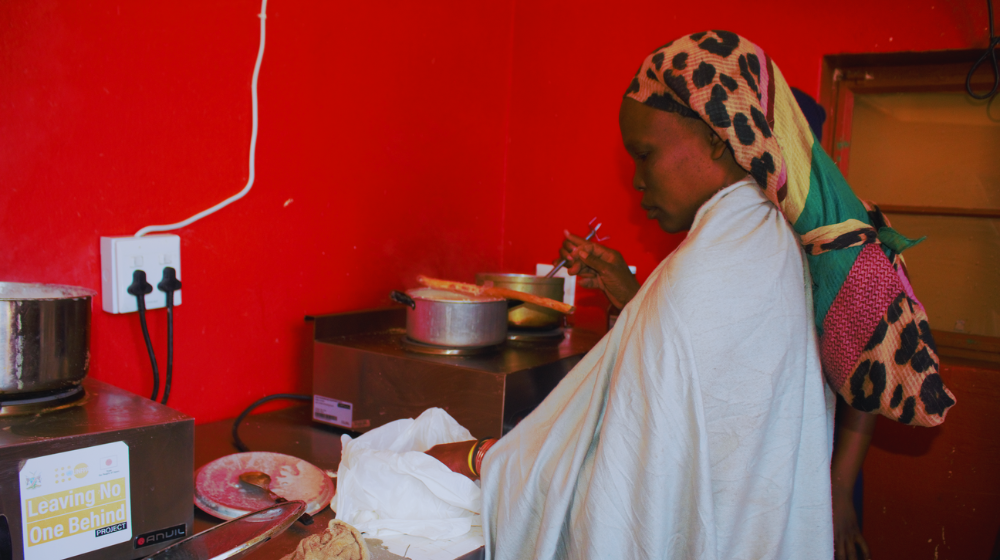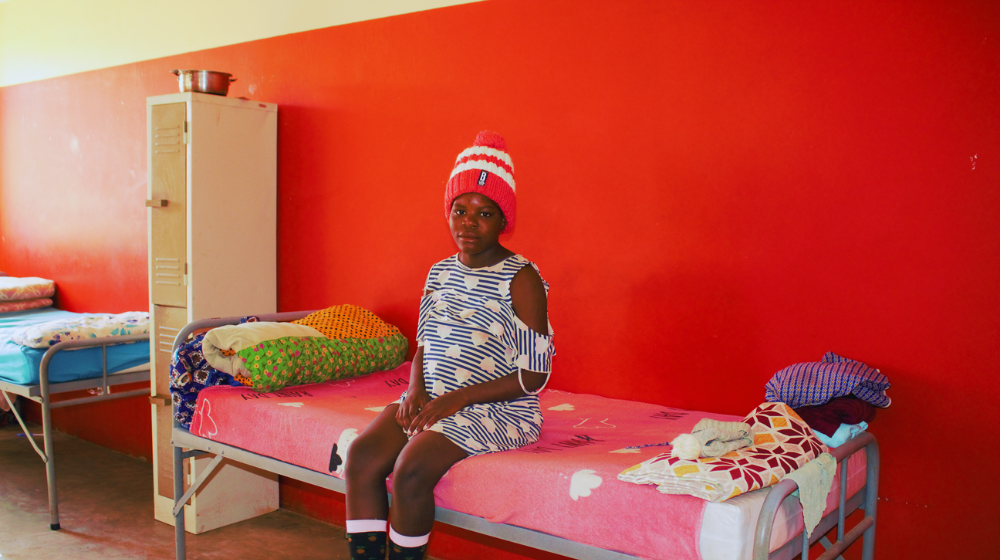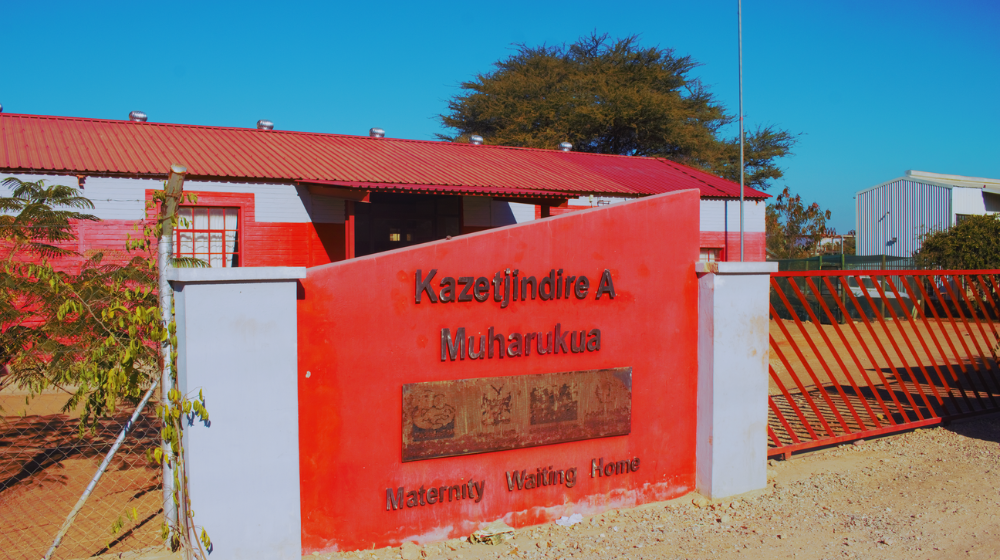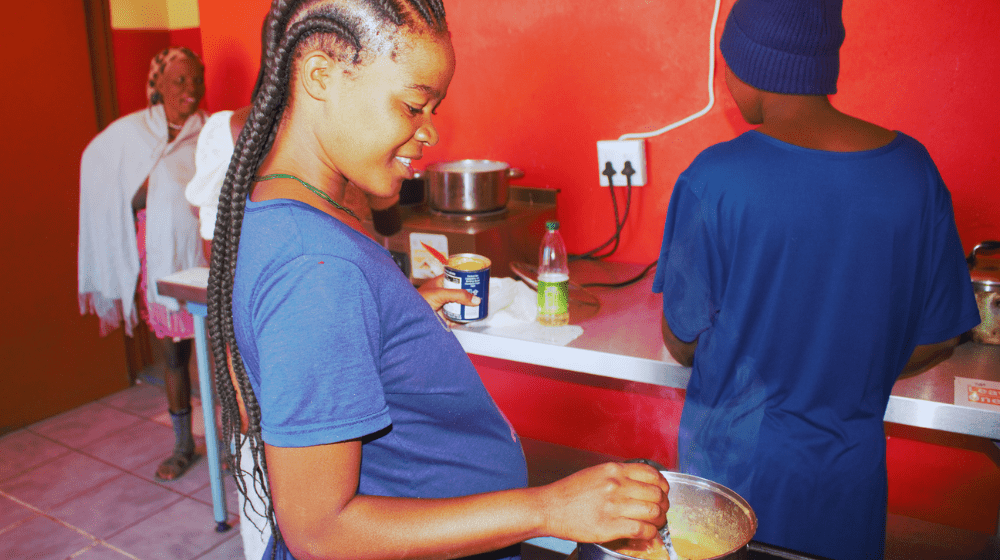
OPUWO, Namibia - From Outapi to Walvis Bay, the unwavering determination of some pregnant women in Namibia shines brightly, despite the formidable obstacles they confront in pursuit of safe and dignified pregnancies.
While women in these towns have resorted to camping outside healthcare facilities – finding shelter in makeshift corrugated iron structures without water and sanitation – those living in Opuwo and its surrounding areas have found solace and dignity at the Kazetjitindire Angelika Muharukhua Maternity Waiting Home, allowing them to savour their pregnancies like anyone else in the world.
“At the village, we cannot relax because we have to look after the cattle. We have to walk many kilometres to get water. Here the water is not far and we can cook with electricity”, explained some of the 15 women currently staying at the maternity waiting home in Opuwo.
Extreme poverty, long distances to healthcare facilities and low health-seeking behaviours are just some of the challenges that impede pregnant and lactating women living in nomadic communities, hard-to-reach or rural areas in Namibia from receiving essential maternal healthcare and enjoying a safe and dignified pregnancy.
“If they are in the mountains and a problem occurs it is very difficult for them to reach the hospital on time because of the poor road infrastructure, poor network and long distances”, says Kunene Region Health Director Thomas Shapumba.
“The purpose of the maternity waiting room is to ensure that expectant mothers are closer to health facilities and skilled health practitioners”, said Shapumba.
With pregnant women and girls housed in maternal waiting rooms, midwives and doctors can detect any issues or complications earlier and can treat or refer women and girls to other health facilities for specialized treatment. This in turn helps to reduce both maternal complications and deaths.

Life in a maternal waiting room
Earlier this year, UNFPA with support from the Japanese Government, donated new furniture and kitchenware including a refrigerator, two industrial stoves and blankets to the maternity waiting home in Opuwo through the Leaving No One Behind project.
Visiting today, you will find that these women are making full use of their upgraded facilities with many gathered in the kitchen exchanging stories and sharing ingredients among themselves as they cook.
Although women and girls can stay in the maternity waiting room free of charge from the time they are six months pregnant, they must provide themselves with food. However, in a region with one of the highest incidences of multidimensional poverty (64%) in Namibia, this proves to be a significant hurdle for women such as 23-year-old expectant mother, Diana Tjirazo.
“This is a good place but we are suffering. The problem is that we do not have food”, says Diana. “We only have porridge and that is what we eat three times a day here. Sometimes we wake up to go to the clinic without eating and when we come back there is still no food to eat”, she explains.
Although Diana expresses her gratitude for having the opportunity to stay at the Kazetjitindire Angelika Muharukhua Maternity Waiting Home, it has not completely alleviated all anxieties related to her pregnancy, adding that she cannot also rely on her baby’s father or her family for support during her stay at the maternity waiting home.
“They are not supporting us because they do not have anything to support us with”, she says.
Embracing change and spreading the word
Some male partners to pregnant women were initially reluctant for their wives/girlfriends to stay at the maternity home because of different factors including culture and traditions, but according to Kunene Health Director Thomas Shapumba this has gradually subsided over time.
“They expressed concern that their wives may go to the maternity waiting room and find a new partner. However, after their stays, they have told me these concerns have become irrelevant. They do not exist at all now”, he added.
Despite the obstacles she is facing, Diana and others at the maternity waiting home all agreed that they would still encourage other women to take up the opportunity.
“We were ourselves encouraged, so we will do the same when we return to our communities”, said the group.
“This is why you have a free service such as this with free water, accommodation and electricity, it makes the mothers advocate for others to use the maternal waiting room”, added Shapumba.
While Namibia currently grapples with a maternal mortality rate of 215 deaths per 100,000 live births, it is evident that there is still much progress to be made in order to attain the Sustainable Development Goal 3 target of less than 70 deaths per 100,000 live births by 2030.
Through supporting critical initiatives like maternity waiting homes, the Leaving No One Behind project, through the invaluable support of the Japanese Government, is playing a pivotal role in the collective effort to reduce maternal mortality rates in Namibia, thereby ensuring the health and wellbeing of mothers and children across the country.



